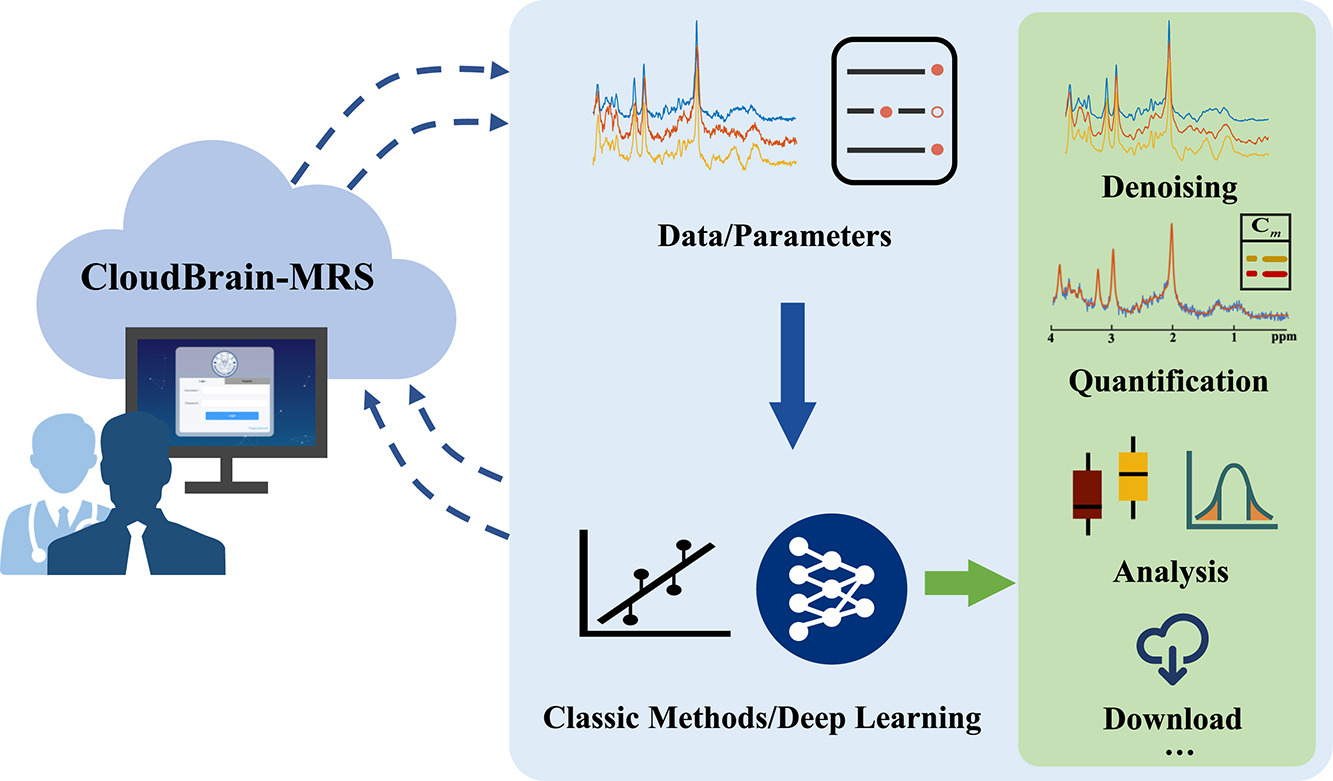A Step Forward in My Health Data Science Journey
For the past few years, I have been immersed in the world of Health Data Science, a fascinating field where technology and healthcare converge to transform the way we understand and utilize biomedical data. Over this time, I have learned a lot, but I continue to discover innovative tools that expand my horizons. Today, I want to share one of them with you: CloudBrain-MRS.
What is CloudBrain-MRS?
CloudBrain-MRS is a cloud-based platform specifically designed for the analysis of magnetic resonance spectroscopy (MRS) data. MRS is a technique that enables the non-invasive analysis of the biochemical composition of living tissues. It is widely used in research on neurological diseases, cancer, and other metabolic disorders.
Key Features of CloudBrain-MRS
- ✅ Global accessibility: No need for local software installation.
- ⚡ Automation: Reduces manual MRS data processing.
- 🧠 AI-powered analysis: Provides faster and more accurate biomarker identification.
- 📊 Intuitive visualization: Facilitates data interpretation with detailed graphics.

Why is CloudBrain-MRS Important?
Before discovering this platform, I knew that analyzing MRS data required specialized tools, but I hadn’t considered how difficult it could be without the right software. CloudBrain-MRS makes these processes more accessible by leveraging cloud computing and artificial intelligence, allowing researchers, clinicians, and health data professionals to work efficiently without extensive computational infrastructure.
💡 Personal Reflection
This discovery strengthens my motivation to continue exploring the impact of cloud computing and artificial intelligence in healthcare. While I am no longer a beginner in Health Data Science, I am still learning and uncovering new tools that can make a significant difference in biomedical research and patient care.
If you are exploring the field of digital health, I encourage you to learn more about CloudBrain-MRS and other cloud-based solutions. The future of medicine lies in data, and the more we understand these tools, the better we can contribute to improving healthcare.
References
- 📄 Original article on CloudBrain-MRS in Journal of Magnetic Resonance: Link to PubMed article
- 🏛️ Visit platform on CloudBrain